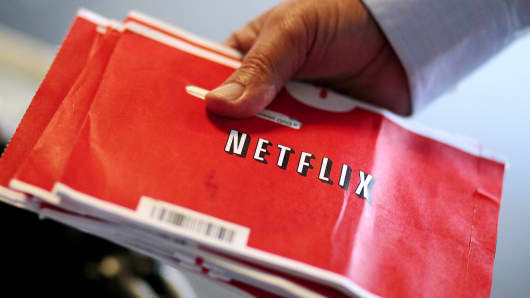(Read More: Netflix Delivers Surprise Profit, Outlook; Shares Jump)
The big question: will premium original content lure in new subscribers? Or will the fact that you can watch the entire 'season' over the course of the weekend mean that people will be inclined to pay for just one month, and then dump the service?
Morgan Stanley's Scott Devitt, with an 'Overweight' rating on the stock, projects that the Bull case for Netflix is that it "is able to reduce churn and drive incremental sub growth by delivering strong original programming." The risk is if "original programming is executed poorly and there is no tangible, sustained lift in subs."
(Read More: In the Mail; Court Finds Netflix Gets Unfair Postal Advantage)
BTIG analyst Richard Greenfield says that the shows "look and feel like an HBO or Showtime series," and that "virtually every traditional media outlet is rooting for the releasing strategy's complete and utter failure." But Greenfield points out that Netflix isn't the only player in the premium content game, pointing to "the progress Amazon has made in a relatively short amount of time." Though he says they're not denting Netflix's subscriber growth, Amazon may co-exist and thrive by taking a similar strategy, Greenfield says.
Needham's analyst Charlie Wolf, who is dropping coverage, warned that because Netflix has already signed up over half of U.S. households, it'll be "increasingly difficult" for original programming to accelerate its subscriber growth rate."
Though subscribers will have the option of devouring the series all at once, there won't be any immediate indication of whether it's a hit. Netflix doesn't plan to release any viewer numbers, but last week Reed Hastings told CNBC in an exclusive interview about how Netflix will internally measure its success. First, the company will track how many of its subscribers watch, and among non-members, Netflix will measure awareness, whether people have heard about the show, if they know it's on Netflix, and if they're excited about it."
(Read More: Netflix's Hastings Facebook Post Violated SEC Rule)
But no matter what, Hastings says he hopes the show to impact Netflix's customer base: "for some people, it'll be the tipping function that gets them to join." Hastings told CNBC last week, "For other people, it sets a base. And then, when they hear about some other show, then they're finally going to join Netflix."



